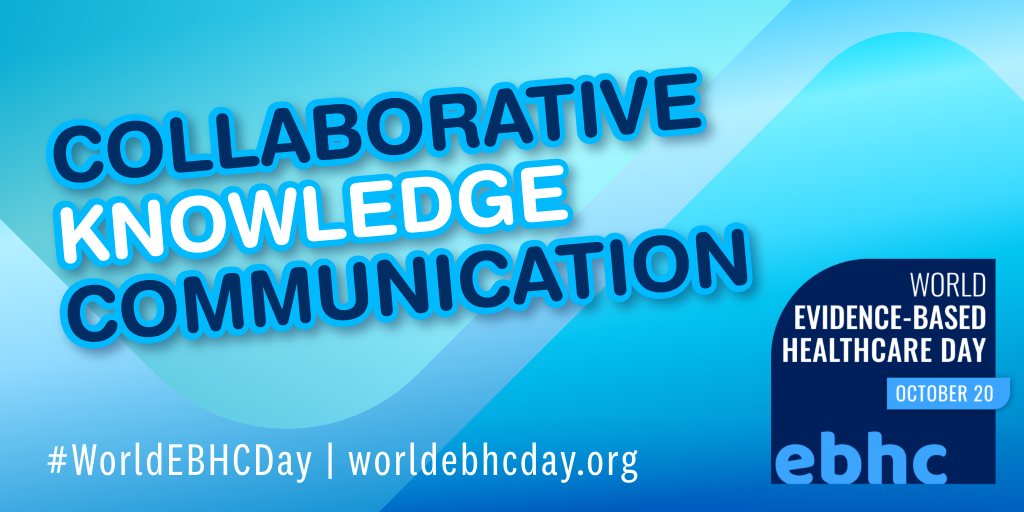Today an international coalition of organisations dedicated to evidence-informed decision-making launched the World Evidence-Based Healthcare (EBHC) Day 2025 campaign, ‘Collaborative Knowledge Communication’.

World EBHC Day is delivered in partnership by JBI, Cochrane, The Campbell Collaboration, Institute of Development Studies (IDS), Centre for Evidence-based Health Care, and Instituto Veredas.
Held annually on 20 October, World EBHC Day raises awareness of the need for better evidence to inform healthcare policy, practice and decision-making in order to improve health outcomes globally.
The 2025 campaign, “Collaborative Knowledge Communication,” calls for a reimagining of how health knowledge is shared and understood. It recognises that clear, inclusive, and participatory communication is essential, not just strategic or ethical, to ensure that knowledge is trusted, accessible, and meaningful to all interest-holders, including communities that have historically been marginalised.
“Collaborative knowledge communication is about creating, sharing, and using knowledge through interaction and cooperation to achieve shared goals,” said Bianca Pilla, Chair of the World EBHC Day Steering Committee Chair. “In healthcare, this approach helps ensure that knowledge is understood, trusted and actionable by everyone involved.”
The campaign recognises that in evidence-based healthcare, knowledge must draw not only from scientific evidence but also from community values and preferences, clinical expertise, policy judgement, contextual understanding, evaluation of existing approaches, and lived experiences. Explicit, implicit, tacit, and Indigenous knowledge are all recognised as different, yet equally valid, ways of knowing.
“This campaign is about more than communication. It’s about inclusion, trust, and empowerment. By making space for diverse ways of knowing and expressing evidence, we can foster deeper understanding and stronger health outcomes for all.”
“How we hear information and evidence, who we hear it from, and what emotions it evokes affects not only our trust in evidence but also our internalisation of its implications. IDS is proud to be a part of World EBHC Day for a second year running, and support this years’ theme of Collaborative Knowledge Communication””, said Nasreen Jessani, Head of Knowledge, Impact and Policy cluster at IDS.
World EBHC Day 2025 issues a global call to action, inviting individuals and organisations to share their creative and collaborative approaches to knowledge communication. Whether through storytelling, theatre, music, visual art, infographics, animation, video, or interactive games, the campaign seeks to showcase how innovation can transform complex health evidence into something people can connect with and use.
Individuals and organisations are also invited to contribute to global discourse around collaborative knowledge communication by submitting a blog, short video or podcast, visual media, or by hosting an event.
To learn more about World EBHC Day and to participate in the 2025 campaign, visit: https://worldebhcday.org
